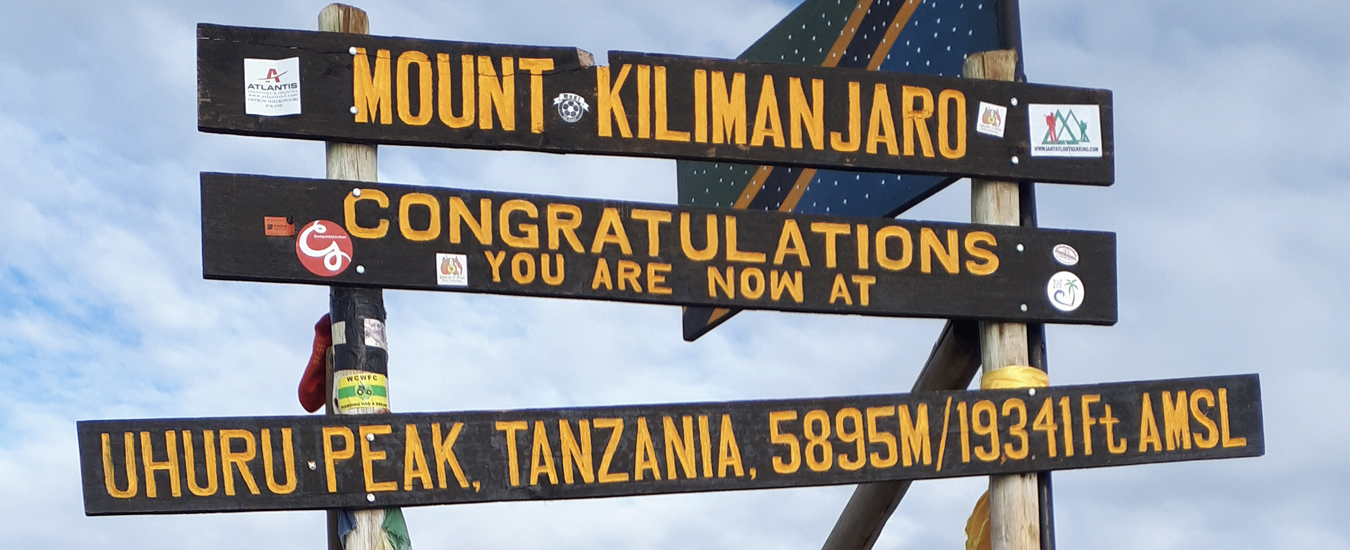Barry Cudmore is a farmer by trade and by heritage who’s deeply committed to serving his community and improving farming on P.E.I. and abroad. His expertise led to the creation of the Environmental Farm Plan Workbook. He co-founded Farmers Helping Farmers (FHF), which pursues practical projects in East Africa with nine Kenyan workers. The organization estimates it’s helped more than 100,000 people. In 2022, at age 72, Cudmore scaled Mount Kilimanjaro to raise money for its work. For a lifetime of accomplishments at home and abroad, he was inducted into the Atlantic Agricultural Hall of Fame. Saltscapes spoke with Barry Cudmore about one or two cows, trekking, and fires.
Climbing mountains seems like a vigorous retirement activity.
I’m definitely not retired. I’ll just keep farming until I make up my mind what I should do in life.
What else might you have done?
I graduated in ’72 and decided, along with a couple of my second cousins, ‘Let’s go west.’ I worked in an oil field north of Edmonton. The other dramatic thing that happened in Edmonton, I met Ellen, my future wife, who was from P.E.I.
Why didn’t you stay?
Remembrance Day 1975, after a discussion with Ellen, I said, ‘I want to go back to the family farm,’ a 100-acre (40-hectare) subsistence farm near Brackley Beach. My wife’s father was an architect and had a woodlot. We cut all the lumber and built a house.

How did you make a living off a subsistence farm?
We went from 100 acres to 700 (40 to 283 hectares). We had hogs, soybeans, spring wheat, and seed potatoes. I have one really good employee who can fix anything and do most of the planting. I don’t want to do this till the day I die.
So, how do you feel about your decision to farm?
I feel good about it. We raised four kids who learned common sense. Farming has allowed me to do the things I wanted to do. I’ve gotten involved in trekking, been to Everest base camp and climbed Kilimanjaro.
I wanted to ask you about the link between FHF and Kilimanjaro.
In 1979, there was this international forum, so through all the jigs and reels, we developed relationships through the Kenya National Farmers Union. We would fund projects that they suggested, determined to support women’s groups. They do a lot of the farm work and are responsible for keeping their families fed and clothed.
What are some FHF achievements?
The biggest area of success was through vet students and their teacher working with Kenyan farmers to develop better herd health, better nutrition. Provide assistance for a family cow, and you get them out of poverty. Two cows and they move up. They’ll have milk to sell and milk for their family.
Does your faith play a role in your volunteer work?
I always think that I can’t out-give God, and that you’re always blessed when you give. When I climbed Kilimanjaro, there were drought conditions. Kids were coming to school hungry. We raised $13,000. The women there said it was an answer from prayer. There were days I had violent arguments with myself. Why am I putting my body through this? I just said, ‘Barry, you’re doing this for starving kids. Keep moving one foot ahead of the other.’
What heights will you climb next?
I’ve been thinking, wouldn’t it be neat to climb Mount Kenya, the second highest peak in Africa and involve FHF? It would be the last best chance of Barry climbing something.
Anything else you’d like to add?
We’ve had three fires. We lost our house, the potato warehouse, and 70 vehicles we stored. My life got shortened that day, but I’ve always felt that hard times don’t last. God will never give me more crap in my life that he won’t allow me a way through. Even with the more difficult things in my life, I feel very lucky.
